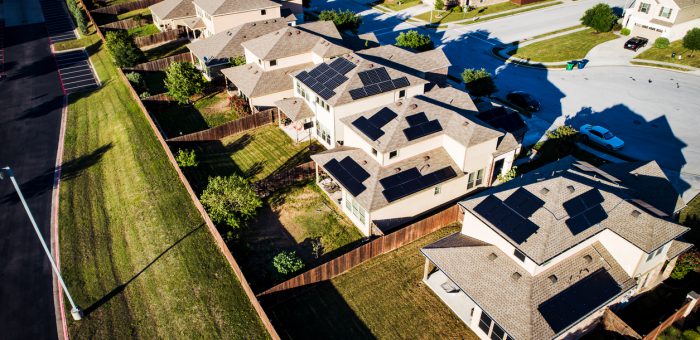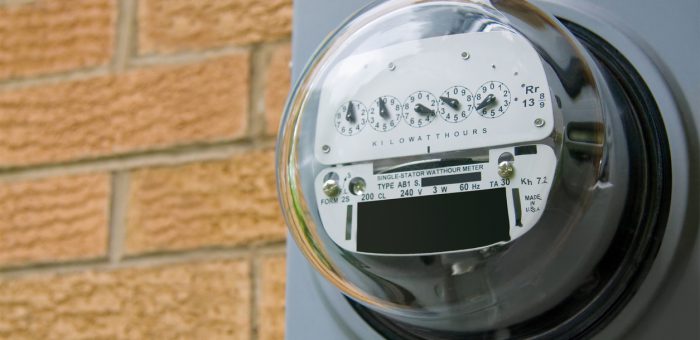There are many ways to reduce your monthly electricity bills. Steps like swapping out your light bulbs, unplugging electronics to avoid phantom energy drain, adjusting your thermostat settings, and making sure your large appliances are in good working condition can help reduce the amount of power your home uses. When you use less energy, you pay less. When should you consider residential solar energy?
You may also want to review your current energy plan. Expensive rates, especially during the summer months, can lead to shocking spikes in your costs. Even with an affordable rate, hidden fees can keep your bills higher than you might like.
Enter Power Wizard. Power Wizard’s smart online shopping tools will help you find the best electricity plans with the lowest rates. Combining the right plan with your efforts to reduce your power consumption can help you save more.
Another solution that’s been gaining popularity — especially with homeowners looking to reduce their carbon footprints — is going solar. Have you considered a residential solar energy system for your home? Here’s what you need to know.
What is residential solar energy?
Residential solar energy provides an alternative to traditional electricity, allowing you to use the sun’s rays to power your home. It reduces your reliance on the grid, the amount of conventional power your home uses, and your monthly electricity bills.
There are a few different types of residential solar systems:
- Grid-tied systems, which connect to the power grid, are currently the most common — and affordable — systems for solar-powered homes. They produce most of your electricity and feed excess electricity back into the grid, which can earn you credits toward your electric bills. There’s no battery, so you can’t store any extra electricity, but you can use energy from the grid when necessary. Depending on how much power you feed back, your credits could cancel out the cost of the traditional electricity you do use. If there’s a power outage, you’re still affected.
- Off-grid systems are the most expensive option. They’re standalone systems with no ties back to the grid. Instead, a home produces all of its own energy and stores its excess in high-capacity batteries. An off-grid system enables a homeowner to be entirely self-sufficient, and they’re unaffected by power outages on the grid.
- Hybrid systems are a combination of the first two types. Your system ties into the grid and has a battery backup. In other words, you can store the excess energy you create rather than sell it back for bill credits. If the power goes out, the backup battery can power your home for a short period.
How residential solar energy systems work
When you go solar, you install special panels made of photovoltaic cells. Essentially, when sunlight hits your solar panels, it shakes up the electrons in the cells, generating a flow of energy known as direct current (DC) electricity, which travels to your system’s solar inverter. The inverter turns DC electricity into alternating current (AC) energy, the type of energy every electrical device in your home needs. Newly converted AC electricity continues to your electrical panel and then into your home.
When you get a solar energy system, you’ll also have a smart meter installed if you don’t already have one. Your smart meter keeps track of the power you use from the grid when your residential solar panels don’t produce enough electricity. It also monitors the excess energy your system sends back to the grid so that your retail energy provider can credit you correctly. Smart meters transmit this data wirelessly, eliminating the need for someone to come out monthly to read them.
Why is solar electricity worth the installation costs?
The initial cost of solar panel installation can be a bit of a shock for many homeowners. Most systems cost well over $10,000, even after tax credits. Despite the price tag, getting solar panels for your home can be well worth the investment.
The panels are long-lasting and require little maintenance. Generally, all they need is an annual inspection and cleaning. Solar panels produce clean energy, which helps in your efforts to reduce your family’s carbon footprint. Net metering makes it possible to sell excess energy in exchange for bill credits. You may also be eligible for certain tax credits and other incentives.
What are the advantages of installing solar panels?
Let’s take a closer look at some of the top advantages of investing in a solar energy system for your home.
1. Lower your monthly electricity bills
Even after you find a great energy plan with Power Wizard and make some energy-efficient home improvements, electricity tends to be the biggest expense for most homeowners after your mortgage. Solar panels help you drastically reduce the amount of conventional energy you use by generating what your home needs to run every day. That can translate to significant savings.
That’s not all, though. When your system sends excess energy back into the grid, you can earn credits from your retail energy provider. The company applies those credits to your monthly electricity bills, reducing your financial burden even more. Depending on how much you send back, the amount you owe for energy could be next to nothing.
2. Save on taxes with the residential energy-efficient property credit
Installing solar panels for home use can earn you a decent tax credit. One of these is the residential energy-efficient property credit. You can qualify for a credit of up to 26% of your total cost based on the date of your system’s installation.
- Systems installed between Jan. 1, 2020, and Dec. 31, 2022: 26%
- Systems installed between Jan. 1, 2023, and Dec. 31, 2023: 22%
Note: The credit expires in 2023, so it won’t apply to systems installed on or after Jan. 1, 2024. If you’re thinking about investing in solar panels and want to take advantage of this incentive, you may want to start planning soon.
3. Increase your home’s value with solar power
In addition to decreasing your energy bills, saving you a significant amount of money every year, solar panels can increase the value of your home. While the actual increase varies, some research indicates solar panels could add $20 in value for every $1 reduction in annual energy costs. So if your system saves you $1,000 a year, it could potentially add $20,000 in overall value.
What makes your home eligible for solar system installation?
Before you start shopping for potential solar companies, you’ll want to determine whether your home is suitable for solar panels. First and foremost, does your roof get enough sun exposure? Trees casting excessive shade can keep panels from producing sufficient electricity.
Two other factors to keep in mind are the direction and tilt of your roof. Generally, solar panels perform best on south-facing roofs with slopes between 15 and 40 degrees. However, other types of roofs may work well, too.
Don’t forget to consider the age of your roof. After paying a solar company to install your panels, one of the last things you want is to have to take them down to replace your roof and then reinstall them. If your roof is nearing the end of its life, you may want to replace it first.
Shop around for solar panels and electric plans
Once you decide to go solar, you may be wondering how to get solar panels for your home. Texas is one of the leading states for solar energy, with nearly 600 solar installers. California leads the nation when it comes to homes with rooftop solar, with over 6.3 million homes with solar panels installed. Looking for installers that service your area, asking your friends and family, and reading reviews can help you narrow down your options. Speaking with a few of your top choices can also help.
Even with solar panels on your home, you’ll still need a great electricity plan in the deregulated areas of Texas. That way, you won’t be charged an exorbitant amount of money for the energy you do need to use from the grid. Power Wizard is here to help make the process of signing up for an energy plan that makes sense for your needs easier. Best of all, it takes only a few minutes of your time to find a plan that helps you maximize your savings.
Are you ready to get started? Visit Power Wizard today!


